CISS Announces Faculty and Graduate Student Small Grant Recipients
In Spring 2022, the Center for Innovation in Social Science invited proposals for mini-grants intended to help foster new research or enhance in-progress projects among faculty, full-time lecturers, and graduate students. The Center received outstanding proposals and funded 16 graduate students and six faculty members working across a range of academic disciplines.
The Center was able to award more grants than they had initially anticipated. They were fortunate that the Associate Provost for Graduate Affairs and Graduate School of Arts and Sciences provided matching funds for the 2022 PhD Summer Internships in Social Sciences program, allowing the reallocation of Center funds for several additional graduate student travel awards.
Grant Recipients

Zoe Albert (she/her) is pursuing a PhD in Biological Anthropology. Her medical background, in tandem with her love of animals, has encouraged her involvement in this field. Albert’s research interests include female primates and human women, hormones, conservation, menstruation, and sexual coercion. Her dissertation work will focus on the study of the gut microbiome of wild orangutans and its intricate relationship to health. Check out her profile on the Anthropology website here.
Albert will use the Center awarded funds to conduct pilot research and fecal analysis of wild Bornean Orangutans living in degraded and preserved areas within Gunung Palung National Park, West Kalimantan Indonesia. She hopes this will illustrate conservation implications related to habitat loss and animal health and wellbeing.
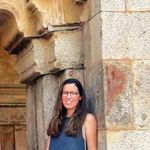 Elinore Avni (she/her) is a PhD student in the Sociology department. She obtained her Master’s degree in Sociology from Tel Aviv University. Her research interests include intergenerational relationships, aging, the life course, medical sociology, international sociology, and quantitative methodology. Check out her profile on the Sociology website here.
Elinore Avni (she/her) is a PhD student in the Sociology department. She obtained her Master’s degree in Sociology from Tel Aviv University. Her research interests include intergenerational relationships, aging, the life course, medical sociology, international sociology, and quantitative methodology. Check out her profile on the Sociology website here.
Avni is currently evaluating responses from people in the US, Germany, and Israel to the question of “who should primarily provide” eldercare and childcare across three countries. Avni will evaluate how cross-national differences in attitudes toward care are associated with cultural and socioeconomic characteristics and highlight implications for policy and practice. She will use Center funding to present her work at the Gerontological Society of America Conference (GSA 2022).
 Elif Birced (she/her) is a Ph.D. candidate in the Sociology department. Her research interests include sociology of work and occupations, cultural sociology, and economic sociology. She is currently conducting dissertation research on content creators and the creator economy in Turkey. Check out her profile on the Sociology website here.
Elif Birced (she/her) is a Ph.D. candidate in the Sociology department. Her research interests include sociology of work and occupations, cultural sociology, and economic sociology. She is currently conducting dissertation research on content creators and the creator economy in Turkey. Check out her profile on the Sociology website here.
Outside of her dissertation, Birced’s current project aims to understand the conditions under which people consider what they do as “work” with a particular focus on the experiences of 32 graduate students in the USA and Turkey. Through her research, she has shown that organizational practices, interactions between graduate students and professors, between graduate students and graduate school staff, and between different graduate students play a role in shaping whether graduate students perceive their labor as work or a part of their training. She will use Center funding to present this work at the American Sociological Association’s Annual Meeting.
 Taylor Boas (he/him) is an Associate Professor of Political Science. His research examines electoral politics, public opinion, and political behavior in Latin America, including its intersection with religion. He is the author of Evangelicals and Electoral Politics in Latin America: A Kingdom of This World (Cambridge University Press, forthcoming). Check out his profile on the Political Science website here.
Taylor Boas (he/him) is an Associate Professor of Political Science. His research examines electoral politics, public opinion, and political behavior in Latin America, including its intersection with religion. He is the author of Evangelicals and Electoral Politics in Latin America: A Kingdom of This World (Cambridge University Press, forthcoming). Check out his profile on the Political Science website here.
Boas’s current study examines why Brazilian migrants to the Boston area have disproportionately supported right-wing populists, including Jair Bolsonaro and Donald Trump. He will focus on the role of conservative religion, particularly evangelicalism, and will draw on surveys, participant observation, and focus groups. Boas will use Center funding to hire a research assistant.
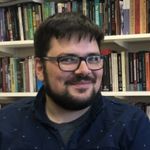 Florian David Bodamer (he/him) is a Ph.D. Candidate in the Political Science department. His main research interests include political economy and security in defense industries and how defense industries influence states’ power in the international system. Bodamer studies state interactions with business and industry interest groups, variation in industrial policies, arms exports, defense industry globalization, and domestic procurement patterns and defense spending. Check out his profile on the Political Science website here.
Florian David Bodamer (he/him) is a Ph.D. Candidate in the Political Science department. His main research interests include political economy and security in defense industries and how defense industries influence states’ power in the international system. Bodamer studies state interactions with business and industry interest groups, variation in industrial policies, arms exports, defense industry globalization, and domestic procurement patterns and defense spending. Check out his profile on the Political Science website here.
Bodamer’s dissertation focuses on explaining the variation of foreign inputs in armaments built by domestic defense industries and why understanding this variation is significant to understanding a key concept in international relations: power. He will use Center funding to present at the American Political Science Association Conference 2022 and hire an undergraduate research assistant.
 Aarti Bodas (she/her) is a PhD Student in the Psychological and Brain Sciences department. Aarti’s research includes the development of children’s scientific thinking and reasoning skills: What kinds of questions do children ask to learn scientific information, what types of explanations do children hear, and how do both of these factors influence children’s scientific knowledge?
Aarti Bodas (she/her) is a PhD Student in the Psychological and Brain Sciences department. Aarti’s research includes the development of children’s scientific thinking and reasoning skills: What kinds of questions do children ask to learn scientific information, what types of explanations do children hear, and how do both of these factors influence children’s scientific knowledge?
Her current study evaluates the differences in 5-to-8-year-old’s perceptions of causal explanations and purpose-based explanations when it comes to learning science: Do children rate one of these explanation types as higher in quality, and do children trust an informant who provides causal explanations more than one who offers purpose-based explanations (or vise versa)? Bodas is using Center funding to hire an undergraduate research assistant.

Wade Campbell (he/him) is an Assistant Professor of Archeology and Anthropology. Campbell is a Diné (Navajo) historical archaeologist whose research examines the relationships between Diné communities and other local groups in the U.S. Southwest from the 17th century to today, including the Pueblos, Spanish, and Americans. Wade investigates questions related to longer-term patterns of Navajo settlement and economic activity across the greater Four Corners region, focusing on incipient Indigenous pastoralism and related shifts in land use, social organization, & diet/subsistence practices. Check out his profile on the Archeology department website here.
Campbell will use Center funding to conduct a 10-day-long reconnaissance survey of select early Navajo archaeological sites in the Dinétah region of northwest New Mexico and “indigenous foodways”-driven examination of Navajo archaeological collections in curation facilities in Santa Fe and Albuquerque.
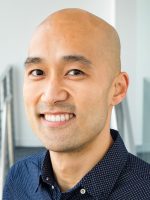
Charles B. Chang (he/him) is an Associate Professor of Linguistics at Boston University (BU), where he directs the Phonetics, Acquisition & Multilingualism Lab PAMLab. His research examines speech perception and production, language learning, bilingualism, and language attrition. Check out his website here.
Chang was awarded funding to support undergraduate research assistance. The project is a collaborative effort with investigators at Heinrich Heine University, Düsseldorf (Germany) and University College London (UK); the Alcohol Intoxication Effects on Language (“AlcoLang”) project is examining the effects of alcohol intoxication, a common experience across cultures, on speech production by bilingual language users. The student RAs will contribute to the acoustic analysis of speech recordings collected in this project.
 Daryl Ireland is a Research Assistant Professor and a Principal Investigator on the China Historical Christian Database (CHCD). See his website here. The CHCD a massive international collaborative effort in the Digital Humanities to identify where every Christian church, school, hospital, convent, publishing house, and the like, were located in China between 1550 and 1950, and to record who was connected to those places, both foreigners and Chinese. The combined temporal, spatial, and relational information allows the CHCD to quantify and visualize Christianity in China in new and powerful ways, allowing scholars to use ‘big data’ to rethink the connections between China and the West. Built around geographic and social network mapping features, the CHCD allows students and scholars to explore Sino-Western exchanges in a new way and on a grand scale. Ireland will be using Center funding to hire undergraduate research assistants.
Daryl Ireland is a Research Assistant Professor and a Principal Investigator on the China Historical Christian Database (CHCD). See his website here. The CHCD a massive international collaborative effort in the Digital Humanities to identify where every Christian church, school, hospital, convent, publishing house, and the like, were located in China between 1550 and 1950, and to record who was connected to those places, both foreigners and Chinese. The combined temporal, spatial, and relational information allows the CHCD to quantify and visualize Christianity in China in new and powerful ways, allowing scholars to use ‘big data’ to rethink the connections between China and the West. Built around geographic and social network mapping features, the CHCD allows students and scholars to explore Sino-Western exchanges in a new way and on a grand scale. Ireland will be using Center funding to hire undergraduate research assistants.
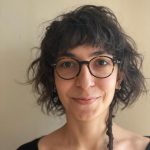 Dilan Eren is a Ph.D. candidate in the Sociology department. Eren’s research interests fall at the intersection of work, occupations, organizations, inequalities and stratification, and cultural sociology. Check out Eren’s profile on the Sociology department website here.
Dilan Eren is a Ph.D. candidate in the Sociology department. Eren’s research interests fall at the intersection of work, occupations, organizations, inequalities and stratification, and cultural sociology. Check out Eren’s profile on the Sociology department website here.
Eren’s dissertation, “The Self-Taught Economy: Open-Access and Inclusion in the Tech Industry,” examines how aspiring developers without a computer science degree make sense and use open-access to coding skills initiatives to get jobs in tech. Eren adopts a longitudinal perspective and uses multiple methods, including surveys, in-depth interviews, digital ethnographic observations, and content analysis, to understand how open access to coding skills may alter -or fail to alter- the existing regimes of inequalities in getting tech jobs and make tech more diverse. Eren will use Center funds to present at the European Groups for Organizational Studies.
 Amirah Fadhlina (she/her) is a Ph.D. student in the Anthropology department. Fadhlina’s research examines the religious and grassroots activism of gender-nonconforming communities in Central and West Java to understand how gender pluralist expressions take shape under the current landscape of Islamism in Indonesia. Check out Fadhlina’s profile on the Anthropology department website here.
Amirah Fadhlina (she/her) is a Ph.D. student in the Anthropology department. Fadhlina’s research examines the religious and grassroots activism of gender-nonconforming communities in Central and West Java to understand how gender pluralist expressions take shape under the current landscape of Islamism in Indonesia. Check out Fadhlina’s profile on the Anthropology department website here.
Fadhlina will use Center funds to conduct preliminary research for her current project, exploring various activist strategies used by a segment of the Muslim third-gender waria community and transgender youth in Yogyakarta, a city in south-central Java. This project serves as preliminary research for her dissertation, highlighting competing visions of Islamic morality, gender, and sexuality in twenty-first-century Indonesia.
 Max A. Greenberg (he/him) is a Senior Lecturer in the Sociology department who researches and teaches in the areas of political sociology, youth and families, and gender. His most recent book, Twelve Weeks to Change a Life: At Risk Youth in a Fractured State, examines the reorganization of state power around short-term grants and fleeting programs. Check out his profile on the Sociology department website here.
Max A. Greenberg (he/him) is a Senior Lecturer in the Sociology department who researches and teaches in the areas of political sociology, youth and families, and gender. His most recent book, Twelve Weeks to Change a Life: At Risk Youth in a Fractured State, examines the reorganization of state power around short-term grants and fleeting programs. Check out his profile on the Sociology department website here.
Greenberg will use Center funding to present his in-progress paper, “Change Programs: Culture, Evidence-Based Interventions and the Consequences of Behavioral Public Health,” at the American Sociological Association’s annual meeting. This article incorporates insights from cultural sociology to conceptualize short-term, evidence-based health interventions as a distinct type of cultural project, which he calls change programs, and examines how individuals make sense of narratives intended to transform them.
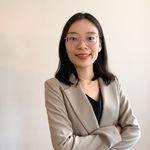 Ya-Ching Huang (she/her) is a Ph.D. student in the Sociology department. Her research interests include economic sociology, cultural sociology, morality, medical sociology, and global health. She is particularly interested in economic activities that are legally debatable and have different moral reasoning across cultures or countries. Her current research explored the production and allocation of homemade cloth masks, changing meanings of masks, and discourses on mask use amid the COVID-19 pandemic. Check out Huang’s profile on the Sociology department website here.
Ya-Ching Huang (she/her) is a Ph.D. student in the Sociology department. Her research interests include economic sociology, cultural sociology, morality, medical sociology, and global health. She is particularly interested in economic activities that are legally debatable and have different moral reasoning across cultures or countries. Her current research explored the production and allocation of homemade cloth masks, changing meanings of masks, and discourses on mask use amid the COVID-19 pandemic. Check out Huang’s profile on the Sociology department website here.
Huang will use the Center to present her current work at the Society for Advancement Socio-Economic (SASE).
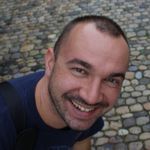 Peter Kováčik (he/him) is a PhD student in the Anthropology department. Kováčik studies ancient agriculture, foodways, and environmental change, primarily in the Southwest United States and the eastern Mediterranean. He is interested in how socio-economic and political changes, such as population aggregation and incorporation into a new political entity, affected how communities made decisions about managing woodland resources. Check out his profile on the Anthropology website here.
Peter Kováčik (he/him) is a PhD student in the Anthropology department. Kováčik studies ancient agriculture, foodways, and environmental change, primarily in the Southwest United States and the eastern Mediterranean. He is interested in how socio-economic and political changes, such as population aggregation and incorporation into a new political entity, affected how communities made decisions about managing woodland resources. Check out his profile on the Anthropology website here.
Kováčik will use Center funding to process flotation samples from archaeological sites archived at Maxwell Museum of Anthropology in Albuquerque, NM. He will use this information to examine environmental archaeological record to understand how land-use practices manifest dynamic power relations and how they affected the environment in the Middle Rio Grande region of central New Mexico between the fourteenth and eighteenth centuries CE.
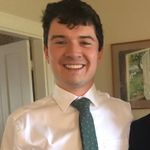 Trevor Lamb (he/him) is pursuing a PhD in Anthropology. He is interested in using multiple approaches to characterize ancient burnt food stuck to pieces of pottery so that he can better understand how people ate in the past. He is especially interested in how northern hunter-gatherers incorporated plant foods into their diet, and he is currently researching fragments of plants stuck to ancient pottery from Kodiak Island, Alaska. Check out his profile on the Anthropology website here.
Trevor Lamb (he/him) is pursuing a PhD in Anthropology. He is interested in using multiple approaches to characterize ancient burnt food stuck to pieces of pottery so that he can better understand how people ate in the past. He is especially interested in how northern hunter-gatherers incorporated plant foods into their diet, and he is currently researching fragments of plants stuck to ancient pottery from Kodiak Island, Alaska. Check out his profile on the Anthropology website here.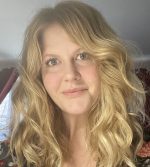 Meghann Lucy (she/her) is a Ph.D. candidate in the Sociology department. Her research examines consumption, excess, divestment, inequality, medical sociology, and how these intersect. More specifically, she studies representations of normative consumption in popular culture and the medicalization of consumption and accumulation patterns, i.e., hoarding behaviors. Lucy’s research focuses on hoarding as a complex social and psychological problem that brings together many different groups of people and impacts communities, city budgets, relationships, and individual and community health and safety. Check out her profile on the Sociology department website here.
Meghann Lucy (she/her) is a Ph.D. candidate in the Sociology department. Her research examines consumption, excess, divestment, inequality, medical sociology, and how these intersect. More specifically, she studies representations of normative consumption in popular culture and the medicalization of consumption and accumulation patterns, i.e., hoarding behaviors. Lucy’s research focuses on hoarding as a complex social and psychological problem that brings together many different groups of people and impacts communities, city budgets, relationships, and individual and community health and safety. Check out her profile on the Sociology department website here. Greg Marinovich (he/him) is master lecturer in journalism in the College of Communications. He is a Pulitzer Prize-winning photographer and documentary filmmaker who spent 25 years covering conflict around the globe. He is co-author of The Bang-Bang Club, a nonfiction book on South Africa’s transition to democracy that has been translated into six languages. His investigations into the Marikana massacre of miners by police was called the most important South African journalism post-Apartheid, and a book Murder at Small Koppie won the Alan Paton award for non-fiction in 2017.
Greg Marinovich (he/him) is master lecturer in journalism in the College of Communications. He is a Pulitzer Prize-winning photographer and documentary filmmaker who spent 25 years covering conflict around the globe. He is co-author of The Bang-Bang Club, a nonfiction book on South Africa’s transition to democracy that has been translated into six languages. His investigations into the Marikana massacre of miners by police was called the most important South African journalism post-Apartheid, and a book Murder at Small Koppie won the Alan Paton award for non-fiction in 2017. Gokhan Mulayim (he/him) is a Ph.D. Candidate in the Sociology department. Working primarily at the intersection of economic and cultural sociology, organizations, occupations and work, and urban studies, he studies how the so-called extra-economic is translated into the economic. He looks specifically into how peculiar goods and services are being economized, and how the markets for those goods and services are being constructed. Using ethnographic research tools, his dissertation examines the economization of security as a political, social and affective good and service in the market for private security in Istanbul. Check out his profile on the Sociology department website here.
Gokhan Mulayim (he/him) is a Ph.D. Candidate in the Sociology department. Working primarily at the intersection of economic and cultural sociology, organizations, occupations and work, and urban studies, he studies how the so-called extra-economic is translated into the economic. He looks specifically into how peculiar goods and services are being economized, and how the markets for those goods and services are being constructed. Using ethnographic research tools, his dissertation examines the economization of security as a political, social and affective good and service in the market for private security in Istanbul. Check out his profile on the Sociology department website here.  Thao P. Nguyen (she/her) is a doctoral candidate in the Sociology department. Her research interests revolve around love, sex, and desire in the 21st century. Her project, “Playing Cat-and-Mouse with a Platform: Attention Games under Algorithmic Management in the Creator Economy” is about online content creators’ labor of maneuvering algorithmic management and platforms’ carrots and sticks. In her case study, she compares sex workers on Instagram and Twitter and viral video creators on Facebook to examine how they navigate platform governance and its algorithms. Check 0ur her profile on the Sociology department website here. Nguyen will use Center funding to present her work at the Global Perspectives on Platforms and Cultural Production Conference.
Thao P. Nguyen (she/her) is a doctoral candidate in the Sociology department. Her research interests revolve around love, sex, and desire in the 21st century. Her project, “Playing Cat-and-Mouse with a Platform: Attention Games under Algorithmic Management in the Creator Economy” is about online content creators’ labor of maneuvering algorithmic management and platforms’ carrots and sticks. In her case study, she compares sex workers on Instagram and Twitter and viral video creators on Facebook to examine how they navigate platform governance and its algorithms. Check 0ur her profile on the Sociology department website here. Nguyen will use Center funding to present her work at the Global Perspectives on Platforms and Cultural Production Conference.
Spencer Piston (he/him) is an Associate Professor of Political Science. His research examines the politics of oppression in the United States, focusing on race, class, public opinion, political behavior, elections, the welfare state, and the criminal justice system. Piston is the author of Class Attitudes in America, which was published in 2018 by Cambridge University Press. Check out his profile on the Political Science department website here.

Atibhi Sharma (she/her) is pursuing her masters’ in Economic Policy while working as a Research Assistant at the Global Development Policy Center. Hailing from India, she strives to work on creating a better public administration system that can accurately predict, and resolve any unintended consequences of a policy. Check out her linked in page here.
Sharma’s research aims to identify key issues, current trends, and social welfare aspects of accessibility and mobility conditions and governance of urban transport systems in urban Mumbai, India. The project will employ both qualitative and quantitative methods. The qualitative methods will consist of a literature review to diagnose the problems faced by PwDs. These problems will be categorized in three broad areas: urban transport governance, urban transport, and impacts and externalities of the urban transport system itself. Sharma will use center funds to conduct field travel, beneficiary surveys and provider interviews in the city of Mumbai, India.
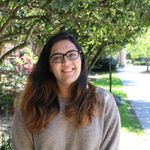 Pritika Sharma (she/her) is a Ph.D. student in the Anthropology department. From New Delhi, her research is at the intersection of romantic love, marriage, and middle-classness in India. She is interested in exploring the changes in the ideas of romantic love, family, and sociality in India through extensive study of Indian wedding rituals. Check out her profile on the Anthropology department website here.
Pritika Sharma (she/her) is a Ph.D. student in the Anthropology department. From New Delhi, her research is at the intersection of romantic love, marriage, and middle-classness in India. She is interested in exploring the changes in the ideas of romantic love, family, and sociality in India through extensive study of Indian wedding rituals. Check out her profile on the Anthropology department website here.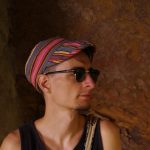 Jacob Tischer (he/him) is a Ph.D. candidate in the Anthropology department. His research interests include Taiwan, #burningmoney, folk religion, ritual, and politics, intangible cultural heritage, modernity, and tradition. Tischer’s dissertation explores the modernization of traditional religious practices in Taiwan. Working with Taiwanese worshipers of all ages, he focuses in particular on the significance of walking pilgrimages, religious innovation, and the discussion whether religious performance should be considered a form of labor (and be remunerated as such) or not. Check out his profile on the Anthropology department website here.
Jacob Tischer (he/him) is a Ph.D. candidate in the Anthropology department. His research interests include Taiwan, #burningmoney, folk religion, ritual, and politics, intangible cultural heritage, modernity, and tradition. Tischer’s dissertation explores the modernization of traditional religious practices in Taiwan. Working with Taiwanese worshipers of all ages, he focuses in particular on the significance of walking pilgrimages, religious innovation, and the discussion whether religious performance should be considered a form of labor (and be remunerated as such) or not. Check out his profile on the Anthropology department website here.